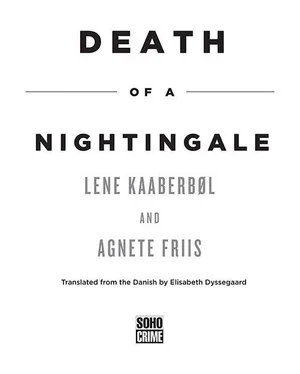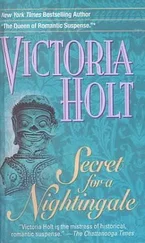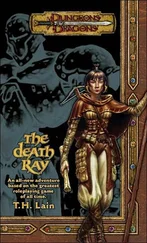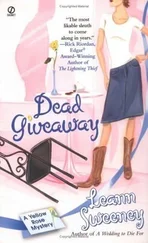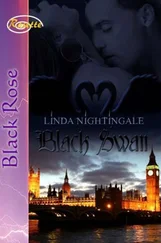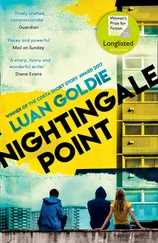Lene Kaaberbol - Death of a Nightingale
Здесь есть возможность читать онлайн «Lene Kaaberbol - Death of a Nightingale» весь текст электронной книги совершенно бесплатно (целиком полную версию без сокращений). В некоторых случаях можно слушать аудио, скачать через торрент в формате fb2 и присутствует краткое содержание. Год выпуска: 2013, ISBN: 2013, Издательство: Soho Crime, Жанр: Старинная литература, на английском языке. Описание произведения, (предисловие) а так же отзывы посетителей доступны на портале библиотеки ЛибКат.
- Название:Death of a Nightingale
- Автор:
- Издательство:Soho Crime
- Жанр:
- Год:2013
- ISBN:1616953047
- Рейтинг книги:5 / 5. Голосов: 1
-
Избранное:Добавить в избранное
- Отзывы:
-
Ваша оценка:
- 100
- 1
- 2
- 3
- 4
- 5
Death of a Nightingale: краткое содержание, описание и аннотация
Предлагаем к чтению аннотацию, описание, краткое содержание или предисловие (зависит от того, что написал сам автор книги «Death of a Nightingale»). Если вы не нашли необходимую информацию о книге — напишите в комментариях, мы постараемся отыскать её.
Death of a Nightingale — читать онлайн бесплатно полную книгу (весь текст) целиком
Ниже представлен текст книги, разбитый по страницам. Система сохранения места последней прочитанной страницы, позволяет с удобством читать онлайн бесплатно книгу «Death of a Nightingale», без необходимости каждый раз заново искать на чём Вы остановились. Поставьте закладку, и сможете в любой момент перейти на страницу, на которой закончили чтение.
Интервал:
Закладка:
She was in the car. She was driving the car. Headlights approached her in pairs. The snow was drifting across the windshield. She had no idea where she was, didn’t remember how she had gotten there. The knife lay on the seat next to her, still with blood on the tip. Inside her there was no longer a goal, no longer any direction or any meaning at all. The temptation to head for a pair of the lights moving toward her was overwhelming.
Suicides did not go to Heaven.
“Don’t fill the child’s head with that superstitious foolishness,” Pavel had said. “There is no Heaven.”
It was the day that Natasha’s grandmother was being buried. September, but still so warm that the air shimmered above the asphalt outside the airport in Donetsk.
“Why not?” asked Natasha. “You don’t know what happens when we die either.”
“I know that there won’t be any angel choirs and harp music for me,” he said.
Katerina had been five. She listened when the grown-ups talked. Not always obviously, but with a silent awareness that made it seem as if she was eavesdropping even when she sat right next to you, as now, in the back of the taxi.
“So Daddy won’t go to Heaven?” she whispered to Natasha.
Pavel heard it even though he was helping the taxi driver put the bags in the trunk. He also saw the silent pleading in Natasha’s eyes.
“Sweetie pie,” he said and slid into the seat from the other side. “That’s a long time from now. We don’t need to think about it.”
“But Great-Grandmother is dead,” said Katerina. “Where is she going if there is no Heaven?”
It wasn’t as if Katerina had seen her great-grandmother all that often. Still, the question was serious, as was Katerina’s worried gaze.
“Are you sad that she is dead?” asked Pavel.
Katerina considered. “She made good poppy seed cakes,” she said.
Pavel smiled. “Good,” he said. “Then we agree that there is a Heaven and that Great-Grandmother is there now. She has just baked a poppy seed cake and made us tea, and we can visit her when we sleep so she doesn’t get too lonely. I’ll just have to try and see if I can stand the harping.”
Katerina accepted this and looked relieved. Death without lifelines was hard for a five-year-old to take on board, and Natasha was happy that Pavel had been as accommodating as he had and that Katerina couldn’t see the irony in his eyes.
Twelve months later Pavel was dead. And for some reason Natasha had a hard time imagining that he sat next to God looking down at them. He no longer took care of them; in fact, he never had. It had just seemed that way until the day the Witch arrived.
SUDDENLY NATASHA KNEWwhat she needed to do. The world fell into place around her, and there was meaning and order again. She could protect Katerina, even though she no longer knew where Katerina was. She could make sure that safe really meant safe.
Once she had wondered at the fact that murderers could get into Heaven when people who committed suicide couldn’t. Wasn’t it worse to kill someone else? Now she was glad that was the way it was. She listened, but Anna-in-her-head apparently had no opinion of her new plan. Still Natasha felt calm, cold and determined. If Katerina really was to be safe, there was only one thing to do.
The Witch had to die.
“This one,” Søren said, pointing at one of Pavel Dorshenko’s many articles. “Why do I have a special feeling about this one?”
Babko stretched and stuck out his hand for the now fairly grimy paper. “May I see?”
“Solovi, solovi, ne trevozhte soldat …”
Nightingale, nightingale, do not wake the soldier, for he has such a short time to sleep. Which of us has not heard this sentimental but beautiful song, whether it was Evgeny Belyaev, who thrilled us with his fantastic tenor, or the Red Army’s talented male choir or more modern soloists? But who was this nightingale really, and whom did she sing for?
Babko took a sip of his lukewarm coffee.
“It doesn’t seem quite like the stuff he usually writes,” he said. “But I can’t see any great potential for scandal. Most of this is generally known. Kalugin’s Nightingale. The story was even turned into a Carmen-like musical a few years ago.”
They had had to return the borrowed office to its owner and were now once again sitting in the headquarters’s dove-blue coffee room. A Sunday lull had descended; only a single uniformed policeman was reading the sports section from one of the tabloids as he consumed his breakfast roll. Søren scanned the text once more. He could grasp the general sense—that it had to do with the world war and the dogfight over Galicia—but his knowledge of contemporary Ukrainian history wasn’t sufficient for him to catch all the nuances.
“What does it mean?” he asked Babko. “The stuff about the Nightingale?”
“She was a kind of Ukrainian Marlene Dietrich,” Babko said and tapped a specific paragraph with a broad index finger. “Oletchka Marasova, she was called. She sang for Bandera’s nationalist troops. She kept up morale and that kind of thing. But it turned out that she sang in more ways than one. She informed on several of them to the KGB, to a Colonel Kalugin—hence the name.”
“Dramatic,” Søren observed. “I can see why someone thought it would make a great musical.”
“It was terrible,” said Babko dryly. “Plot holes you could drive a cart through and so overacted and tear-jerkingly sentimental that some of the audience began to giggle. Very unhistorical and slightly embarrassing.”
Søren sensed that Babko had been one of the gigglers.
“Doroshenko’s version is not much better,” said the Ukrainian. “Some of it is taken directly from the musical, as far as I can see. Other parts are tall tales and myth; he doesn’t distinguish. All that stuff about Kalugin discovering her at an orphanage concert, for example, is nonsense. She did come from an orphanage, true, but she didn’t meet Kalugin until she was grown. And she probably doesn’t have quite as many lives on her conscience as Kalugin claims. She was given credit for a good part of general informer activity. The national army was, to some extent, an underground army and therefore very vulnerable to that kind of traitor. Many were accused, arrested and executed. Bandera was murdered by the KGB as late as nineteen fifty-nine, in Munich, I believe. And he is still a divisive figure. Some see him as a Ukrainian freedom fighter, a hero; others accuse him of war crimes and point out that he allied himself with the Germans for a while. A Ukrainian battalion was created under the banner of the Wehrmacht, and do you know what they called it?”
“No,” said Søren, a bit irritated. This wasn’t a quiz show.
“The Nachtigall Battalion. Funny, don’t you think?”
“Does it have anything to do with her? Kalugin’s Nightingale?”
“Probably not. Or if it does, the connection may run in the other direction—it made the nickname even more appropriate.”
Søren skimmed the article one more time. If you ignored the tragic background of the war, it was basically a banal honey-trap story. It had even been illustrated with photographs of scenes from the musical, he saw, and an apparently random picture of two little girls in some kind of national costume. There were no captions to explain why that was relevant.
“It doesn’t include an accusation,” he said. “None of those badly veiled suggestions that there is a ‘basis for a closer investigation’ and so on. And it all happened a long time ago. So why do I still keep coming back to it?”
“Perhaps because it was published on September eighteenth, two thousand and seven,” said Babko suddenly.
Читать дальшеИнтервал:
Закладка:
Похожие книги на «Death of a Nightingale»
Представляем Вашему вниманию похожие книги на «Death of a Nightingale» списком для выбора. Мы отобрали схожую по названию и смыслу литературу в надежде предоставить читателям больше вариантов отыскать новые, интересные, ещё непрочитанные произведения.
Обсуждение, отзывы о книге «Death of a Nightingale» и просто собственные мнения читателей. Оставьте ваши комментарии, напишите, что Вы думаете о произведении, его смысле или главных героях. Укажите что конкретно понравилось, а что нет, и почему Вы так считаете.
